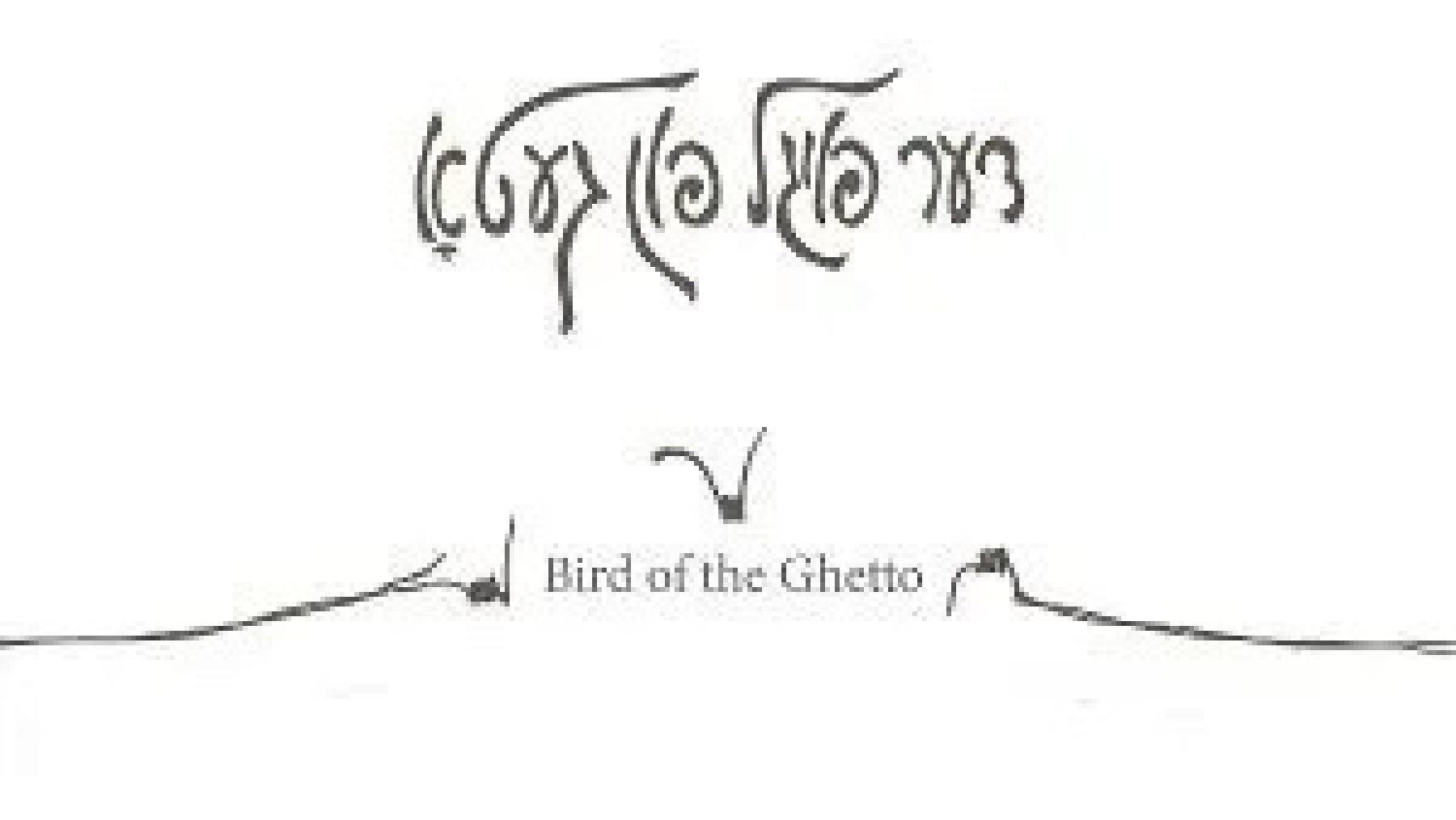
The Bird of COVID
Faith Jones
Chava Rosenfarb’s 1958 drama Der foygl fun geto (The Bird of the Ghetto) had its Yiddish-language premiere April 18 to 22, on the Folksbiene’s video channel. That this monumental play by a major author got its first production in its own language during COVID using online technology tells us a lot about the position of women playwrights in Yiddish culture even today. With its furious examination of hope and despair, humanity and cruelty, gender politics and the destruction of the family, this play should have found an audience long ago. The National Yiddish Theatre Folksbiene presented it as the first in a multi-season festival of plays by women playwrights, all of which will receive readings (and some, perhaps, eventually, full productions). Perhaps not entirely coincidentally, the director (Suzanne Toren) and much of the production team were also women. Like previous readings in Hebrew and English, this production was greatly edited to make it suitable for stage performance. Although she also wrote stories and poetry, Rosenfarb was primarily a novelist, and the play retains a novelistic feel.
Der foygl fun geto takes place in the Vilna Ghetto, based on real events surrounding the historical figure Isaac Wittenberg, the leader of the resistance, and his nemesis Yacov Gens, the Nazi-appointed head of the Judenrat. (For a full plot synopsis, see the play’s entry in Plotting Yiddish Drama). While men take these leadership roles, Rosenfarb fully explores all the ways in which women’s labor and sacrifice make it possible. We hear from Wittenberg’s wife, furious and heartbroken over his abandonment of their family at the very moment when the family most needs him (he has taken up with a younger woman). Women smuggle arms for the resistance, children carry news through the Ghetto: everybody has a role to play in fighting fascism.
Still from the Folksbiene’s production of Der foygl fun geto.
Still from the Folksbiene’s production of Der foygl fun geto.
In the second act, Yacov Gens and his lover Thea fight—and he threatens her physically—over her refusal to show him the deference he believes he deserves. Thea is compromised too: she serves as a policewoman in the ghetto and personally profits from the misery of others. But she at least is both cynical and honest enough to see her own moral failings. Gens has fooled himself into believing he is taking the pragmatic route as a collaborator, for example by complying with Nazi deportation orders for some Jews in the hopes it will buy time for the liberation of the rest.
The bird of the title is of course allegorical as well as real. At the start of the play group of children find an injured bird and nurse it to health. As starvation become more desperate they consider eating it. Every instinct toward kindness and caring becomes twisted in the ghetto. Hope, too, is hard to hold onto. Even the most optimistic character considers buying cyanide when the German Army enters the ghetto. Wittenberg eventually has to give himself up, not to the Nazis but to a Jewish mob that is willing to sacrifice him if it saves themselves. As the ghetto returns to stasis, the bird flies off. (Is this image a response to Zeitlin’s “Dona, dona”? The bird flies off—the humans cannot).
Still from the Folksbiene’s production of Der foygl fun geto.
The play was produced as a reading, but it is clear the actors rehearsed and fully inhabited their roles. The performances were memorable (Avi Hoffman’s Gens and Lea Kalisch’s Thea were a particularly arresting pair). Stage direction was read in voice-over in English—not only a help for visually-impaired audiences, but in this case a necessity since the specific places in the ghetto (the bath-house that Wittenberg uses as a cover for political activity, the room Wittenberg’s lover lives in, Gens’ apartment) create meaning in themselves. Some of these places are public, some are private, and in some the two must collide. Together they are the web the Jews are caught in, stifling their hopes. Costumes were limited to yellow stars, head scarves, hats; props were merely a pipe or another personal item, which helped distinguish between characters. The issue of creating effective stagecraft when the actors are all filming themselves separately was inventively dealt with. Singing together is impossible, but Act I ends with each person singing a single line of “Zog nit keyn mol” as their screens gradually darken. In Act II, a crowd scene is created by blurring the actors: instead of a group of individuals, they are a faceless mob—and we are not distracted by wondering if they are playing the same characters we have seen those actors play previously. Finally, after the play Daniel Kahn performed a song by Shmerke Katcherginski about Isaac Wittenberg, allowing a moment of reflection after the emotionally difficult final scene.
Still from the Folksbiene’s production of Der foygl fun geto.
With these theatrical effects, strong performances, and a demanding script by a woman playwright, the Folksbiene’s Der foygl fun geto was an important moment in Yiddish theatre history. I wonder if some format can be found to produce the unabridged work, such as an episodic radio play or a mixed-media stage production. Challenging material requires innovation, and the Folksbiene has already shown that it can innovate. The rest of the festival promises much more, and with equally thoughtful productions could begin an overdue process to reclaim these forgotten plays. Perhaps selfishly (I live on the West Coast), I’m hoping the rest of the readings will be online too, whatever our COVID status down the road.